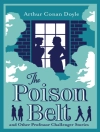In the Palace of Versailles there is a fabulous golden clock, made for Louis XV by the king’s engineer, Claude-Siméon Passemant. The astronomical clock shows the phases of the moon and the movements of the planets, and it will tell time—hours, minutes, seconds, and even sixtieths of seconds—until the year 9999. Passemant’s clock brings the nature of time into sharp focus in Julia Kristeva’s intricate, poetic novel The Enchanted Clock.
Nivi Delisle, a psychoanalyst and magazine editor, nearly drowns while swimming off the Île de Ré; the astrophysicist Theo Passemant fishes her out of the water. They become lovers. While Theo wonders if he is descended from the clockmaker Passemant, Nivi’s son Stan, who suffers from occasional comas, develops a passion for the remarkable clock at Versailles. Soon Nivi is fixated on its maker. But then the clock is stolen, and when a young writer for Nivi’s magazine mysteriously dies, the clock is found near his body. The Enchanted Clock combines past and present, jumping back and forth between points of view and across eras from eighteenth-century Versailles to the present day. Its stylistically inventive narrative voices bring both immediacy and depth to our understanding of consciousness. Nivi’s life resembles her creator’s in many respects, coloring Kristeva’s customary erudition with autobiographical poignancy. Part detective mystery, part historical fiction, The Enchanted Clock is a philosophically and linguistically multifaceted novel, full of poetic ruminations on memory, love, and the transcendence of linear time. It is one of the most illuminating works of one of France’s great writers and thinkers.
विषयसूची
I. Versailles
1. When?
2. “THEO.” What a Story!
3. My Name is Claude-Siméon Passemant
4. Nivi Can See Him as If She Were There . . .
5. Even Though Time Disappears
6. I Dream, Therefore I Am
7. At the Collège Mazarin, During the Regency
8. Now
9. Where Are You, Astro of Mine?
10. King, God, and Complex Time
11. Louis the Beloved
12. The Famous Clock
13. Among the Convulsionaries
14. Someone Has Whispered a Sentence in My Sleep
15. “You Are My Depth”
16. Mama, Are You French?
II. Black Matter
17. Inside–Outside
18. What Is an Internal Coup d’État?
19. I Have Again Dreamed of Your Ancestor
20. Passemant with the Cassinis
21. Here I Am at the Place de l’Étoile
22. Happiness and Fire: With Émilie du Châtelet
23. Do New Patients Exist?
24. In Praise of Illusions
25. Marianne’s Silhouette
26. The Dream of the Primordial Universe
III. Rebirth
27. Death Is Not News
28. Overdose
29. Once Again I Have Broken with the Human Race
30. A Ray of Icy Light
31. Revolutions Start Like This
32. Hyperconnectivity
33. Common Intensities, Strange Intimacies
34. Scenes from Life at Court
35. Theo Has Just Landed
36. Variations on Suicide
IV. The Theft of the Clock
37. 9999 Has Been Stolen
38. Beauty Spots
39. Superluminal Speed
40. Inestimable Trophy
41. Signed, Passemant
42. The King Is Naked; or, The Beginning of an End
43. What If He’s the One!
44. Aubane Would Have Preferred to Evaporate
45. Jealousy? What Jealousy?
46. Conspiracy for a Cause
47. Together Again: The King and His Clockmaker
48. Beehive
49. Where Were You?
50. What the Press Wasn’t Saying
51. Paradise Is at the Lux
52. Silence and Poem
53. Rose Laurels
लेखक के बारे में
Julia Kristeva is professor emerita of linguistics at the Université de Paris VII. A renowned psychoanalyst, philosopher, and linguist, she has written dozens of books spanning semiotics, political theory, literary criticism, gender and sex, and cultural critique, as well as several novels and autobiographical works, published in English translation by Columbia University Press. Kristeva was the inaugural recipient of the Holberg International Memorial Prize in 2004 “for innovative explorations of questions on the intersection of language, culture, and literature.”












